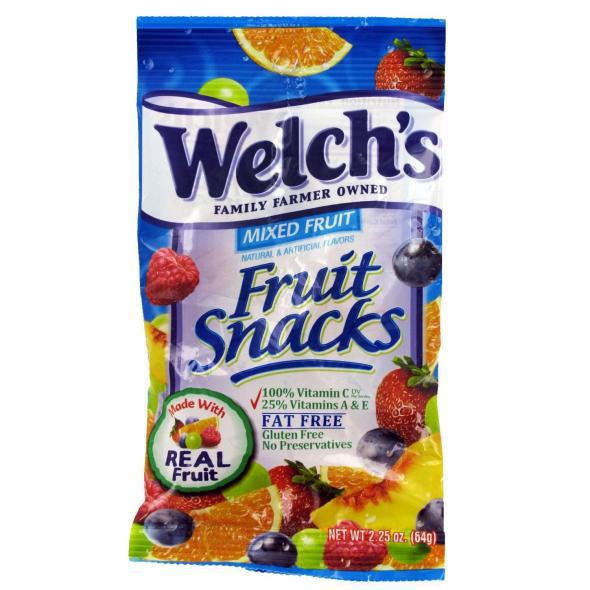I’m always on the hunt for healthy, portable snacks for my kids. Real fruit is great, but I’ve found four-day-old, half-mashed bananas at the bottom of my purse one too many times. So when I see prepackaged snacks at the grocery store such as Welch’s Fruit Snacks, which tout they are made with real fruit, are chock full of vitamins, and contain no preservatives, I’m tempted to buy 42 boxes and call it a day.
Or not. Last week, two women filed a class action lawsuit against Welch Foods, the maker of Welch’s Fruit Snacks, for “deceptive practices in misrepresenting the fruit content and the nutritional and health qualities.” In other words, the complaint says, although Welch’s wants you to think its fruit snacks are healthy, they most certainly are not—really, they’re about as good for your kids as a pack of gummi bears. Same goes for Annie’s Homegrown Organic Bunny Fruit Snacks, which parents love to think of as a healthy, fruity snack. I’m not saying you should never let your kids indulge in treats like this, but don’t pat yourself on the back thinking you’re doing their bodies good when you do.
Let’s start with the sugar. A single serving of the Apple Orchard Medley flavor of Welch’s Fruit Snacks contains 11 grams—nearly three teaspoons’ worth—which means that 43 percent of every bite your kid takes is pure sugar. The Bernie’s Farm flavor of Annie’s Fruit Snacks is worse, composed of 48 percent sugar. By comparison, Haribo Gold-Bears, otherwise known as gummi bears, contain 46 percent sugar, so they’re pretty similar. Yet Gold-Bears also provide 2 grams of protein per serving, and Welch’s and Annie’s provide only a negligible amount. (Some research suggests that protein can boost satiety.)
But their ingredient lists look so different! Yeah, well, let’s see about that. It’s true that there’s no mistaking the first two ingredients used to make Haribo Gold-Bears: corn syrup and sugar. (Ingredients are listed in descending order of weight.) Annie’s Fruit Snacks, on the other hand, list “organic tapioca syrup” as the first ingredient, which sounds healthy but is basically just sugar made from the cassava plant. The next two ingredients are organic cane sugar and organic tapioca syrup solids—more sugar. (But aren’t we relieved it was organically grown?) Looking at Welch’s: Up until recently, most flavors listed “fruit juices from concentrate” as the first ingredient, which the U.S. Department of Agriculture considers yet another synonym for added sugar. This summer, though, Welch’s changed the formulation of many flavors and now uses “fruit puree” as a first ingredient. Still, fruit purees are often very high in sugar. And, anyway, the next two ingredients on the list are corn syrup and sugar.
Another interesting thing: The class action lawsuit alleges that Welch’s is also breaking the law because it fortifies its Fruit Snacks with vitamins. According to what is referred to in the food industry as the “jelly bean rule,” the U.S. Food and Drug Administration considers it inappropriate for food companies to add vitamins to unhealthy products so that they can then market them as healthy. “If Defendants had not illegally fortified the Fruit Snacks with vitamins A, C, and E, they could not claim that these sugary snacks were a nutritious, vitamin-rich food,” the complaint states. The fact that Welch’s fortifies its snacks with vitamin C also means that its claim of containing “no preservatives” is false—vitamin C is a commonly used preservative, and I’m pretty sure Welch’s knows that.
Misleading claims aside, there’s another reason to stay away from these not-so-healthy snacks: For what they are, they’re crazy expensive. At my local grocery store, I can buy 14 ounces of Haribo Gold-Bears for $2.99. By comparison, nine ounces of Welch’s Fruit Snacks cost $2.89, and a mere four ounces of Annie’s Fruit Snacks cost $3.99. That makes Annie’s snacks almost five times more expensive than the candy they so closely resemble. So the next time I want to give my kid gummi candy, I know which brand I’ll buy. The next time I want to feed my kid a snack that’s “made with real fruit,” though, I’ll give him an apple.
